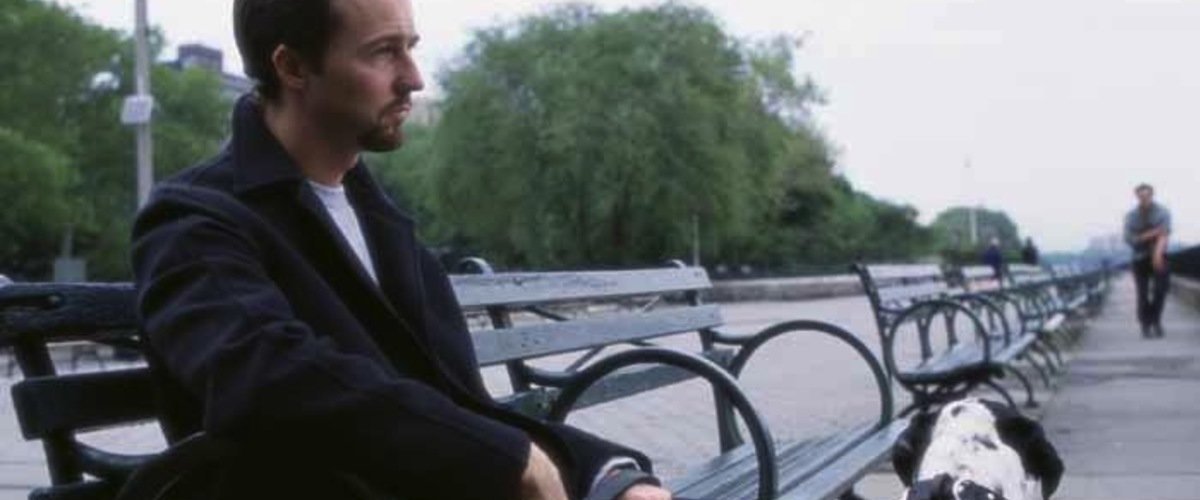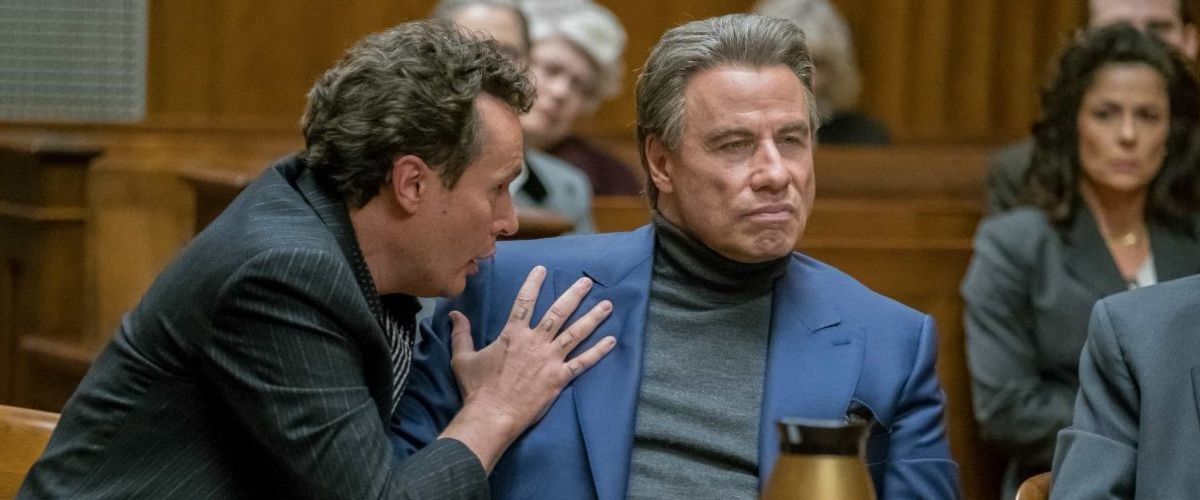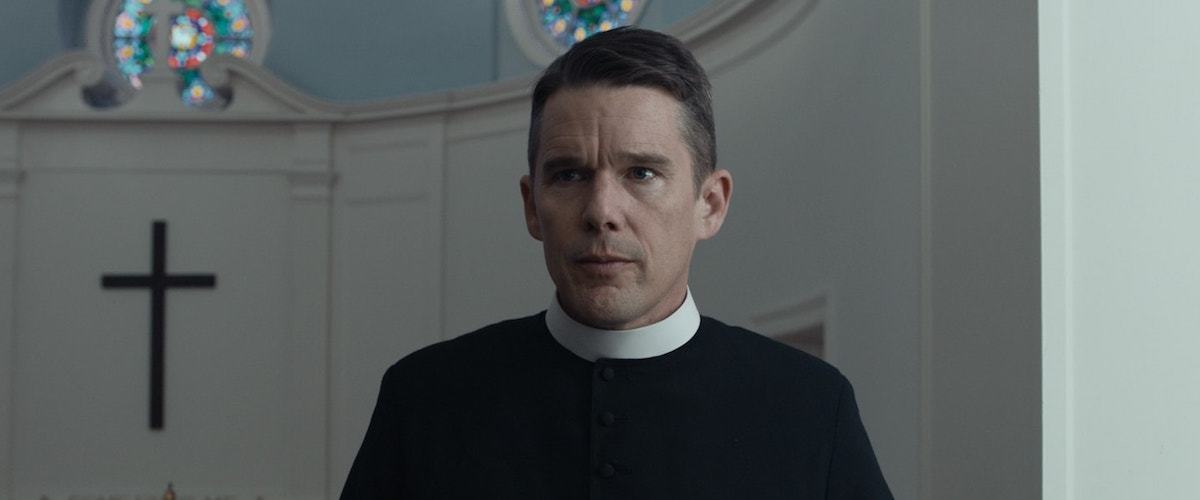
Directed by: Morgan Neville
Starring: Fred Rogers, Francois Clemmons, Joanne Rogers, Yo-Yo Ma
I doubt a show like Mister Rogers' Neighborhood could succeed in today's world in which we are bombarded with information, opinions, and news at a relentless pace. When I first see Fred Rogers' wide-eyed, open smile in Won't You Be My Neighbor?, I admit I was unnerved a bit. Why? Because surely Fred Rogers (1928-2003) couldn't be that benevolent and caring about children, could he? You mean to tell me he has no angle? That this isn't just a phony persona aimed at cynically making millions off of an innocent audience? I am relieved to report that with Fred Rogers, what you saw is what you got. He was as honest, forthright, and loving as his TV persona suggested. I watched the show from time to time in my childhood, but even then found it to be too slow. I wanted cartoons and action, which is precisely why Mr. Rogers created his neighborhood. It was the antithesis of mind-numbing action. He wanted children to think, to listen, and most of all to feel cared about.
Won't You Be My Neighbor? shows us a man who was misunderstood because he exuded gentleness and compassion. He actually felt children deserved to be dealt with honestly and with the belief that they were special in their own way. We see early 2000's media coverage bashing Mr. Rogers for "creating a generation of entitled kids who felt they didn't have to prove they were special." What a cruel bunch of horseshit. As Mr. Rogers stated in his final commencement speech to college grads circa 2002, (shortly before his 2003 death from cancer) he only wanted children to know they
were special. That their feelings and thoughts mattered and that they deserved to be loved for who they are, not who they will eventually be. Rogers could be considered a pioneer in recognizing children's rights.
One of the themes of Morgan Neville's extraordinary and touching documentary is that Mr. Rogers, for all of his square behavior like wearing a sweater and bobo sneakers on his quiet show, was radical and ahead of his time with his thinking and how he explained controversial topics to children on his show. Because I wasn't a regular watcher, I was amazed that Mr. Rogers' Neighborhood actually tackled assassination on the June 7, 1968 broadcast (one day following the assassination of Robert Kennedy). He spent numerous episodes on dealing with death, divorce, loss, and grief; all topics which would certainly confuse children. Heck, they even confuse adults. At no point does Fred Rogers ever condescend to his audience. He didn't sugarcoat. He asked questions and explained honestly and directly. When Mr. Rogers wasn't playing himself on screen, he assumed various personas in the form of puppets such as Daniel (a cat) and King Friday XIII (a pompous, dictatorial king).
Each puppet wasn't just a character, it was an extension of Rogers himself. Daniel represented the doubting, sensitive side, while King Friday represented the Rogers who was angry and wanted things his way. When we hear Rogers talk in a high-pitched voice as Daniel, it is sad and heartbreaking because inside Rogers was sad and heartbroken. The real Fred Rogers was a man who doubted himself constantly, yet pushed forward with his message of acceptance. His childhood was touched upon in interviews with his sister, who confessed that as children she and Fred were not permitted to "be bad" and express anger. They were taught children were to be seen and not heard. The adult Mr. Rogers never forgot how this felt for him, and ensured he would not make the same mistake when dealing with his own children and the children he reached every day on television.
We see how much Mr. Rogers believed in the value of his show and his audience. He defended it vigorously, but not by shouting or being aggressive, but by staying true to himself and finding just the right words to say. Public television has only been around for a little over fifty years; created during the Johnson administration, but facing elimination by Richard Nixon because money was needed to fund the Vietnam War. Public hearings were held by the Senate on the matter, but it seemed clear the programs would be eliminated, until Fred Rogers spoke. With every syllable, he had the committee and especially its harsh chairman eating out of his hand. Rogers spoke to the child in everyone and in the end, the chairman smiled and said, "You just got your $20 million," It is a breathtaking moment.
Mr. Rogers was not perfect and not a saint, but pretty close. He had his moments in which he wasn't so enlightened, such as when he learned Francois Clemmons (a black man who played a police officer on his show) was gay and visiting gay bars. Rogers ordered him not to visit those bars anymore out of fear his sponsors would pull their funding once they found out the show employed a gay man. But, according to Clemmons, Rogers eventually came around and accepted him openly, which caused Clemmons to consider Mr. Rogers his surrogate father. One of the themes during some of the most tumultuous times in our history was how Mr. Rogers accepted all, regardless of color or gender. When blacks were being forced in some cities to leave public pools by cruel pool owners, Mr. Rogers symbolically dipped his feet in a kiddie pool with Francois. His message to children: It was ok to share a pool with a black person.
There are so many stunning and emotional moments in Won't You Be My Neighbor? that it would not be proper to list them all here. One of the wonders of watching this movie is being constantly surprised by the depth of its subject and the love it feels for him. We see how much Mr. Rogers touched so many lives by offering simple messages that children deserve to be valued and should value others in the same way. The movie touches upon people's skepticism about Rogers himself. Surely no one can be this genuine, adults thought, but it turns out there were no skeletons in his closet. Rogers never adapted a persona on camera because he felt children would see right through it. He believed children's innate intelligence would allow them to accept his slow, quiet show with its cheap sets and sock puppets. He was correct, and we may never see anyone like him again. In his own understated, but no less powerful way, Fred Rogers was revolutionary. And in today's even more insane political climate, his calming voice is needed more than ever.







